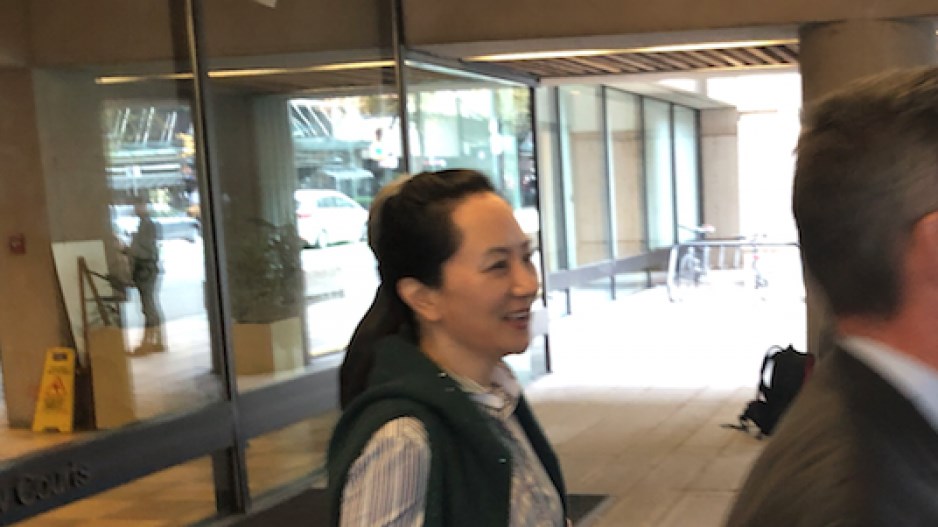The Meng Wanzhou extradition hearings continued this morning as Crown counsel Monika Rahman concluded her arguments on whether U.S. authorities tried to mislead Canadian courts by providing inaccurate evidence.
Rahman, who yesterday called U.S. officials’ actions “honourable” in preparing the Record of the Case (ROC) in Meng’s alleged fraud against HSBC in Hong Kong in 2013, argued in front of the court today that the defence did not provide any evidence that the ROC’s writers were intentionally trying to mislead Canadian courts.
“Our position is that the court does not have in front of it... a case about the merits of the evidence,” Rahman said, refuting the relevance of case precedents brought up by Meng’s defence. “The court has seen no evidence to speak to the impropriety of the requesting state. [The evidence presented] does not speak to the prosecutor’s intent on how they chose to summarize the case – including what they decided to include [in the ROC].”
Meng’s defence on Wednesday laid heavy attack on the ROC and supplemental records of the case provided by U.S. authorities, arguing that the document made several omissions – such as the presence of an HSBC managing director at a 2013 meeting with Meng – that showed the bank was not an unknowing victim of Meng’s alleged misrepresentations about doing business in Iran.
As such, the defence is accusing U.S. authority of trying to trick Canadian courts by presenting a case in the ROC that is favourable to extradition, in violation of the good will and duty to candour that an extradition partner should exhibit in seeking a person’s extradition.
Rahman argued Thursday, however, that none of the evidence presented by the defence amounted to prejudice against Meng in an unfair manner, and the United States – having a very high standard of accuracy and candour in its legal procedures - does not have a duty to explain why it chose to include or exclude certain information from the ROC.
Meng lawyer Frank Addario responded to Rahman’s arguments, arguing the ROC’s omission of items such as the presence of the HSBC managing director at the 2013 meeting does amount to a failure to its duties of candour, and subsequent attempts to say that U.S. authorities meant to state the lack of presence of “decision-makers” amounted to moving the goalposts.
“I think it’s open for the requesting state to try to persuade your ladyship of, ‘Who cares, we have a good case for committal,’” Addario told Holmes. “But judicial review of a requesting state’s conduct is the only way the requesting state is policed in this [proceeding]... It can police misconduct that is a departure for the duty of candour.”
Holmes did challenge Addario on one point: Addario mentioned facts brought out by the new HSBC documents released from Hong Kong courts earlier this year – documents that were rejected as evidence in the case in July by Holmes. The judge challenged Addario on whether it can count as a violation of duty of candour on the part of the United States if the material has already been determined to be immaterial to the Meng case.
Addario, however, said what he mentioned from the rejected documents contained some information about HSBC’s knowledge of Huawei’s relationship with subsidiary Skycom (who was operating in Iran) – parts of which was included in the ROC, making the defence’s argument relevant.
“We say that this was important enough for the drafter [of the ROC] to be included in the ROC, but it wasn’t fairly included in the ROC,” Addario said. “Having chosen to go down the road of saying that senior HSBC officials were told about [Skycom and Huawei], they then misled the court... They felt it was important enough to include the distinction between junior and senior officials, but then they morphed it of the decision-maker element in their argument."
The court has now adjourned until Monday.




